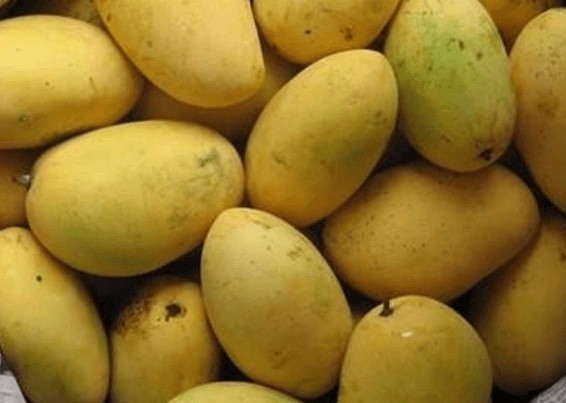News Desk |
Nestlé is reportedly planning to continue its investments in the farming practices of mangoes amid growing concerns around the decline of mango growth in Pakistan.
Climate change has affected mango crop in Pakistan by 20 percent this year particularly in Sindh and Punjab,. The country may get late arrival of crop in both the provinces with less production.
Estimated 20 percent mango crop has been affected by gusty winds, including recent dust-storms and rains. Further losses may occur if such weather situations continue.
Is the King of Fruits in Danger?
The mango is the national fruit of Pakistan. The main mango growing districts in the Punjab provinces are Multan, Bahawalpur, Muzaffargarh and Rahimyar Khan.
In Sindh, it is mainly grown in Mirpur Khas, Hyderabad and Thatta, in Khyber Pakhtunkhwa it is grown in DI Khan, Peshawar and Mardan.
Subsequently, a new trend of growing late varieties in Punjab has received a wide popularity which has extended the market period and added to the exportable surplus.
Pakistani mango is recognized as the best of its kind in the world market. Pakistan is now the 4th largest producer in the world behind India, China, and Thailand.
In Pakistan, 250 varieties of mango are found while most important commercial cultivars of Pakistan are Dasehri, Anwar Ratul, Langra, Chaunsa, Sindhri, Maldha, and Fajri.
In Pakistan, total area under mango cultivation is 170 million hectares with the production of 175 million tonnes being the second major fruit crop of Pakistan. The country produces 8% of world’s mango and mainly exports to Middle East, Germany, Japan, Italy and UK, making its valuable contribution as an important foreign currency earning fruit crop.
Pakistani mango is recognized as the best of its kind in the world market. Pakistan is now the 4th largest producer in the world behind India, China, and Thailand. However, it has been observed that in the past few years the production of quality Mangoes is on the decrease. Pakistan’s horticulture has been badly hit by global warming and extreme weather patterns.
How is Nestlé Contributing to Develop Mango Farming Practices?
Nestlé Pakistan, a leading nutrition, health, and wellness firm with special expertise in the dairy industry, has been contributing largely to help develop sustainable farming communities in the rural areas of the country.
Read more: PAKISTAN HOSTS ONE OF THE LARGEST MANGO FESTIVALS IN DUBAI
Under its initiative Creating Shared Value (CSV), Nestlé in Pakistan is helping different communities to incorporate best global practices in their business.
The Nestlé Chaunsa Project initiated in 2013, in partnership with the Agriculture Department Punjab, was established with the aim to improve the livelihood of farmers within the Chaunsa Mango sector.
The strategy based on CSV intervention through implementation and replication of best farm practices, resulting in right quality pulp and improved harvest has so far contributed largely to the farming industry as partner farms have shown considerable improvement both in quality and quantity of Chaunsa mangoes due to the implementation of best farm practices introduced by Nestlé.
The company procured a limited quantity of Chaunsa mangoes from project farmers as a pilot project, thus reaching the goal of making these farmers a part of Nestlé’s supply chain as Chaunsa
Mango suppliers in 2018, and made the commitment to continue the project through 2019 and beyond to enhance the quality of the Chaunsa Mango in Pakistan, resulting in the socio-economic uplift of the small and medium Mango farmers in the country.
About 10,000 tons of mango pulp has been bought by Nestlé for manufacturing fruit-juice for the local market this year. Out of it, over 80 percent is from the Chaunsa variety.
As part of the company’s sustainable farming practices, it has invested one million rupees in drip irrigation systems that can irrigate one acre of an orchard in 7-8 minutes, thus saving around 90 percent of water as compared to old irrigation methods.
Nestlé’s Mutual Dependence on Pakistan’s Mangoes
The project under CSV would not only improve the mango production of the country, but also help the company get fresh and good quality pulp for its products, especially Fruita Vitals. The best-selling fruit juice of Nestlé is derived from the Chaunsa variety of mango. Mango juice is the most-sought after product of Nestlé Pakistan as it comprises of almost half of all sales of fruit juices in the country.
About 10,000 tons of mango pulp has been bought by Nestlé for manufacturing fruit-juice for the local market this year. Out of it, over 80 percent is from the Chaunsa variety. Nestlé is also working on introducing other varieties of mangoes under its fruit-juice product-line. All the mangoes being used by Nestlé for making juice is originated from Pakistan.
Read more: How mangoes beat Pakistan’s summer heat
The long-term vision for the ‘Chaunsa Project’ is to take Nestlé’s principle of Creating Shared Value (CSV) and support small farmers, just as the company did with its dairy farmers years ago – 150,000 of whom now provide their milk directly to Nestlé as part of their value chain. However, being mutually beneficial, responsible sourcing of mango pulp and development of linkages with Nestlé’s value chain, small farmers have better access to markets where they could sell their mangoes at competitive prices. By doing so the company has continued to improve livelihoods of rural communities across the country, contributing towards rural development.














